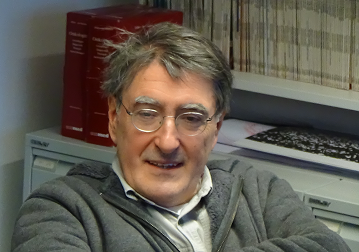 Hans Lehrach obtained his Ph.D. at the Max Planck Institute for Experimental Medicine and the Max Planck Institute for Biophysical Chemistry in 1974. As a postdoctoral fellow at Harvard University from
Hans Lehrach obtained his Ph.D. at the Max Planck Institute for Experimental Medicine and the Max Planck Institute for Biophysical Chemistry in 1974. As a postdoctoral fellow at Harvard University from
1974 - 1978, he carried out one of the first cDNA cloning experiments. From 1978 - 1987, as a group leader at the EMBL, Heidelberg, he was among the first to conduct positional cloning experiments in mouse (Brachyury) and man (e.g. Huntington’s disease and Cystic Fibrosis). He was one of the scientists who initiated the human genome project. As head of the Genome Analysis Department at the Imperial Cancer Research Fund in London (1987-1994), he developed new structural and functional genome analysis technologies (e.g. the first array robotics in 1987). Since 1994 he has been Director and Scientific Member at the Max Planck Institute for Molecular Genetics in Berlin, focusing on genetics, genomics and systems biology. He has co-founded several biotechnology companies such as Sequana Therapeutics, GPC Biotech, Scienion, Prot@gen, PSF Biotech, Atlas Biolabs, Alacris Theranostics, as well as the Dahlem Centre for Genome Research and Medical Systems Biology.
Interview themes:
Interview Excerpt
UD: From what I understand, this purely big-data-driven science doesn't find out about mechanisms.
HL: It can create leads into mechanisms. It creates crucial information to identify mechanisms that you don't know already.
UD: But in order to identity those mechanisms you need to know a lot more than just the sequences.
HL: Sure, as I said, I think it can be a case of "garbage in, garbage out," but depending on how well those things are done, they could identify things which don't fit with our current model, which then can be used to improve the model.
But as I said it's just a tool. You should think about at which point you generate more insight by formulating a hypothesis first and then designing the experiment or where you are better off generating all the data you can and then testing all possible hypotheses on the dataset. It's data generation and hypothesis; the question is what comes first?
Related Interviews: Eric Davidson